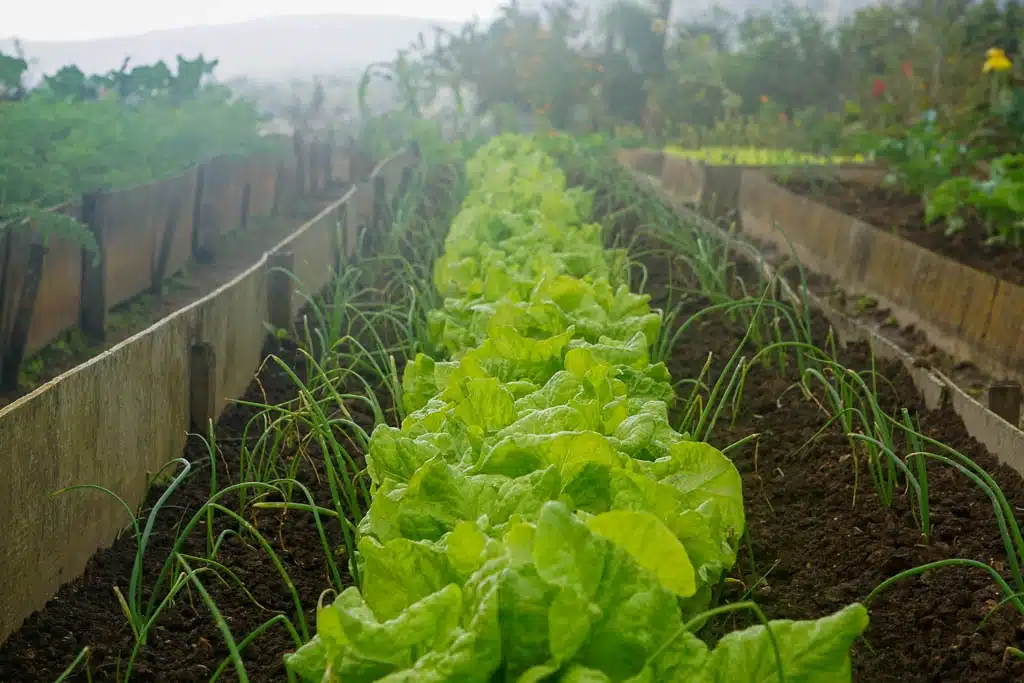We are what we eat, but so is our planet! According to a study published in Nature Food, our food system accounts for over one-third of global greenhouse gas emissions. But with every meal you eat, you have the opportunity to make a climate-friendly decision and reduce your carbon footprint.
In this blog post, we highlight 6 simple ways that your food choices can support the environment – as well as your own health and wellbeing.
#1 What waste?
Preventing food waste is one the best climate-friendly decisions you can make about the food you eat. And we don’t just mean finishing what’s on your plate; preventing food waste starts with what we buy and how we prepare it.
Planning meals in advance and creating a list before you head to the shops help you avoid impulse buying and over-buying. You can also make more use of the food that you buy. For example, most people only eat the broccoli florets, but the leaves also make a tasty side dish (use them to replace spinach leaves). Beetroot leaves are packed with nutrients. Try them sautéed with olive oil and salt and pepper.
When greens start getting wilty, make a pesto!
Lettuce Leaf Pesto Recipe
INGREDIENTS
- 4 cups of lettuce or any other greens
- ⅓ cup fresh parsley or any other herb
- 3 cloves garlic
- ½ cup parmesan cheese
- ½ cup walnuts or pinenuts
- ½ tsp salt
- olive oil to desired consistency (¼ to ½ cup)
INSTRUCTIONS
- Place lettuce, herbs, garlic, parmesan cheese, nuts and salt in a food processor.
- Add olive oil and pulse until the pesto reaches the desired consistency.
- Store in the fridge for up to 2 weeks or freeze for later use.
TOP TIP: Too many avos ripe at the same time? Add avo to your pesto for even more creaminess!
#2 Buy local
Buying food that is grown near you gives you a better opportunity to find out how ethically and ecologically the food has been grown, helping you make better-informed food choices. And because local food hasn’t been shipped thousands of kilometres, it is often more nutrient-dense and delicious. All while contributing to your local economy and preventing unnecessary transport!
#3 Pick perennials
Perennial plants are those which don’t need to be planted from year to year. The benefit of this is that they do not require annual ploughing or herbicide applications to grow, making them better for the environment.
Edible perennials include:
- Rhubarb
- Chives
- Asparagus
- Jerusalem artichoke
- Globe artichoke
- Horseradish
- Watercress
- Grapes.
#4 ‘Tis the season
In the modern era, most of us are used to getting the food we want at any time of the year. But eating seasonally tastes better, is healthier for you and helps to reduce your carbon footprint. Instead of choosing out-of-season foods that have been transported from all over the world or frozen from the previous season, rather choose produce that is grown locally at that time.
#5 Fill your plate with plants
Going vegan or vegetarian isn’t for everyone. But by eating less meat and becoming more plant-centric, you are doing your bit for the environment. Industrial animal products such as meat, dairy and eggs have a huge impact on the world’s resources, and are best avoided or reduced where possible.
#6 Fresh isn’t always best
Fresh fruits and vegetables are delicious and nutritious, but they also spoil quickly. Buying too much fresh produce means that some of it may go to waste if you don’t eat it in time. Frozen foods are convenient and reduce food waste. Contrary to popular belief, frozen food can be even healthier than fresh produce since it’s been harvested and frozen at its peak.
At Zylem, our focus is on soil and plant health for human health. Improved soil health and plant health also mean a lower environmental impact. Get in touch with the Zylem team to find out more about our sustainable solutions that help food producers reduce their carbon footprints. Contact us on 033 347 2893 or send us an enquiry.

About the Author: Alex Platt
Alex is Business Development Manager at Zylem. He’s inspired by the potential of regenerative farming and takes a special interest in the technology and products that are moving agriculture in a more sustainable direction.

